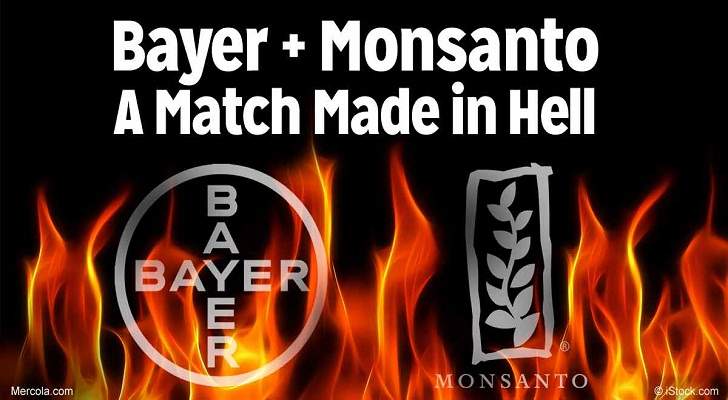CBAN - May 2019 - Bayer – an introductory flyer
The markets for genetically engineered (also called genetically modified or GM) crops are dominated by four seed and agrochemical companies. The high level of corporate concentration in the seed market has already meant higher prices, limited choices for farmers, a narrowing of genetic diversity in crops, and stagnating innovation.
Corporate Mergers
Between 2017 and 2018, a series of mergers took place between the largest seed and agrochemical companies in the world:
- Dow and DuPont merged to form a new company called DowDuPont and its agricultural division is called Corteva Agriscience. Corteva is expected to become a stand-alone company in 2019.
- China National Chemical Corporation (ChemChina) bought Syngenta. Syngenta now exists as a subsidiary of ChemChina.
- Bayer acquired Monsanto for US$63-billion. Monsanto’s name was dropped, and the joint company is now called Bayer.
More mergers and changes continue. For example, the Chinese chemical company SinoChem is expected to acquire ChemChina, to create the world’s largest chemical company.
Canada and other governments had to approve the mergers before they were finalized:
- Read CBAN’s Comments to Canada’s Competition Bureau objecting to the Bayer-Monsanto merger, September 2016.
- Read CBAN’s Press Release: Canada’s Decision to Allow Monsanto’s Mega-Merger with Bayer Worries Farmers, Environmental Groups, May 31, 2018.
Corporate Concentration
The markets for genetically engineered (also called genetically modified or GM) crops are dominated by four giant seed and agrochemical companies. Before Bayer bought Monsanto in 2018, Monsanto was the world’s largest seed and biotechnology company, and Bayer was the world’s second-largest agrochemical company. Four companies now control 67% of the global seed market and 70% of the global pesticide market.
- The two largest seed companies, Bayer and Corteva (DowDuPont), now control 54% of the global commercial seed market.
- The two largest agrochemical companies, Bayer and Syngenta, now control 47% of the global agrochemical market.
- Bayer, after buying Monsanto, owns 33% of the seed market and 23% of the agrochemical market.
- ChemChina-Syngenta now owns the largest market share of agrochemicals at 23.5%.
- DowDuPont’s new agricultural division, Corteva Agriscience, owns 21.3% of the global seed market and 11.3% of the agrochemical market.
- BASF now owns 12.4% of the agrochemical market, after buying assets from Bayer that Bayer was required to divest in order to purchase Monsanto. BASF now owns Bayer’s glufosinate-ammonium herbicide (brand name “Liberty”) products and the GM “Liberty Link” seeds that are tolerant to it.
- The company FMC now owns 4.6% of the agrochemical market, after buying the pesticide assets DuPont had to sell in order to get regulatory approval from the European Union for its merger with Dow.
These companies control most of the genetic engineered seeds planted in Canada and around the world:
Of the 33 GM herbicide-tolerant crops approved for growing in Canada that could be on the market (there is no government tracking of plantings): 22 are owned by Bayer, 6 by Corteva (DowDuPont), and 3 by Syngenta (ChemChina).
In 2007, before the new mergers, the six largest seed and agrochemical companies (Syngenta, Bayer, BASF, Dow, Monsanto, and DuPont) accounted for over 98% of all GE crop acres in the world. Monsanto’s GE traits were approximately 85% of the total GE acreage.
Between 1996, when the first GE seeds were introduced, and 2011, the market share of the world’s three largest seed companies more than doubled, from 22% to 53%. The share of the top three agrochemical companies grew from 33% to 52.5% in the same period.
Several of these companies also regularly “cross-license” or share their patented traits with each other, reinforcing their market power. About half of all commercial GM seeds with stacked traits are the result of cross-licensing between companies.
Source: ETC Group

